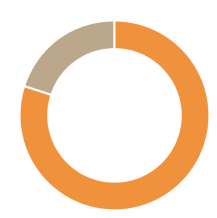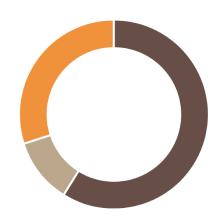Flu season predictions 2024-2025
Every year, we monitor the Australian winter flu season (January to August) and use this information to predict how we will fare in the UK. With this knowledge, our clients can begin to plan for the likely impact on their workforce, and help further support the wellbeing of their people. However, as always, it's important to note that this is not an exact science.
This article was written by Adam Hadfield, Head of Clinical Governance at GoodShape.
Overview:
The 2024 flu season in Australia has been particularly severe, with a sharp rise in cases starting from May, peaking in July, and showing a significant cumulative total of 300,307 cases by mid-August. This represents a dramatic increase compared to previous years, with 288,956 across the entire year in 2023 and 234,581 in 2022 (Australian Government Department of Health, National Notifiable Diseases Surveillance System, 2024). Given it is only September and the numbers have already surpassed the totals of the last two years, it is fair to predict this year will be a severe season for the UK.
Implications for the UK:
Given the similar climate patterns and influenza virus strains that affect both hemispheres, it is likely that the UK will experience a similarly intense flu season to Australia in 2024/2025. Key factors contributing to this prediction include the elevated peak in mid-season cases in Australia and the rapid accumulation of infections, suggesting that the flu virus is both highly transmissible and possibly more virulent this year.
Recommendations:
Advice for individuals:
To protect yourself during the flu season:
- Get vaccinated: Ensure you get the annual flu vaccine, which is your best defence.
- Practice good hygiene: Regularly wash your hands with soap, use hand sanitisers, and avoid touching your face.
- Stay informed: Keep up to date with public health advice and flu activity in your area.
- Boost immunity: Maintain a healthy diet, exercise regularly, and get enough sleep.
- Avoid crowded places: If flu is widespread, limit your exposure to crowded areas.
These measures can significantly reduce your risk of catching the flu.
Proactive steps for employers:
Employers can take several steps to reduce the impact of flu-related workplace absences:
- Promote flu vaccination: Offer on-site flu vaccinations or provide information about local vaccination centres to encourage employees to get vaccinated.
- Flexible sick leave policies: Implement or reinforce flexible sick leave policies that allow employees to stay home if they are ill, preventing the spread of flu.
- Encourage remote work: Where possible, allow employees to work from home if they show flu symptoms or if there’s a flu outbreak.
- Improve workplace hygiene: Provide hand sanitisers and tissues, and encourage regular cleaning of shared spaces and equipment.
- Educational campaigns: Educate employees about flu prevention, such as the importance of hand washing, covering coughs, and avoiding close contact with sick individuals.
By implementing these strategies, employers can help reduce the spread of flu within the workplace, thereby minimising absenteeism and maintaining productivity during flu season.
Conclusion:
The 2024/2025 UK flu season is likely to mirror Australia’s severe season, necessitating proactive measures to mitigate its impact. The NHS and public health bodies should prioritise influenza preparedness to handle the potential surge in cases effectively as to prevent public health services being overwhelmed in the winter.
References:
Australian Government Department of Health, National Notifiable Diseases Surveillance System. (2024, August 22), Immunisation Coalition. Retrieved from https://www.immunisationcoalition.org.au/wp-content/uploads/2024/08/MAIN-Aust-Flu-Stats-worksheet-2024.xlsx-4.pdf
“We have been using the GoodShape service since 2007”

Lorem ipsum dolor
sit amet, consectetuer
adipiscing.

Lorem ipsum dolor
sit amet, consectetuer
adipiscing.
Find out how we can help.
Fill out the form below and one of our team will be in touch to arrange a meeting.



